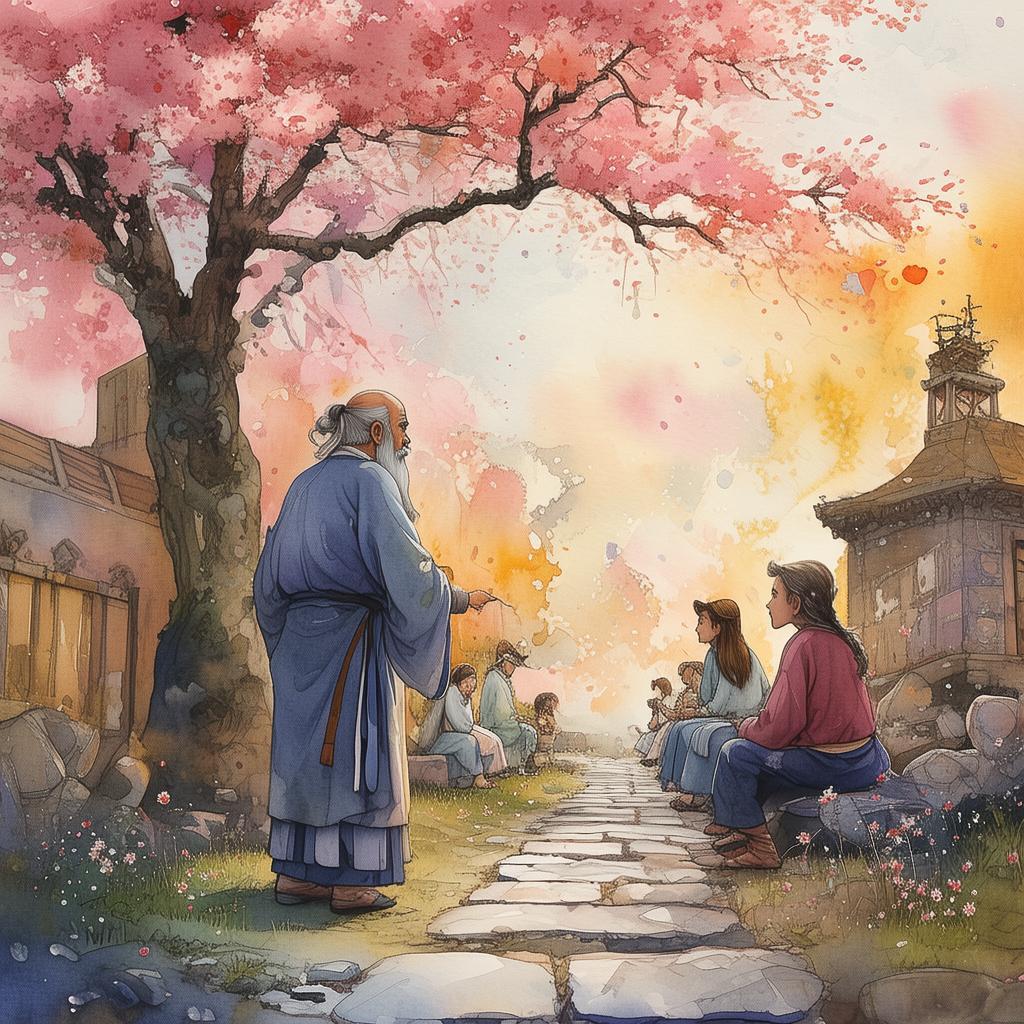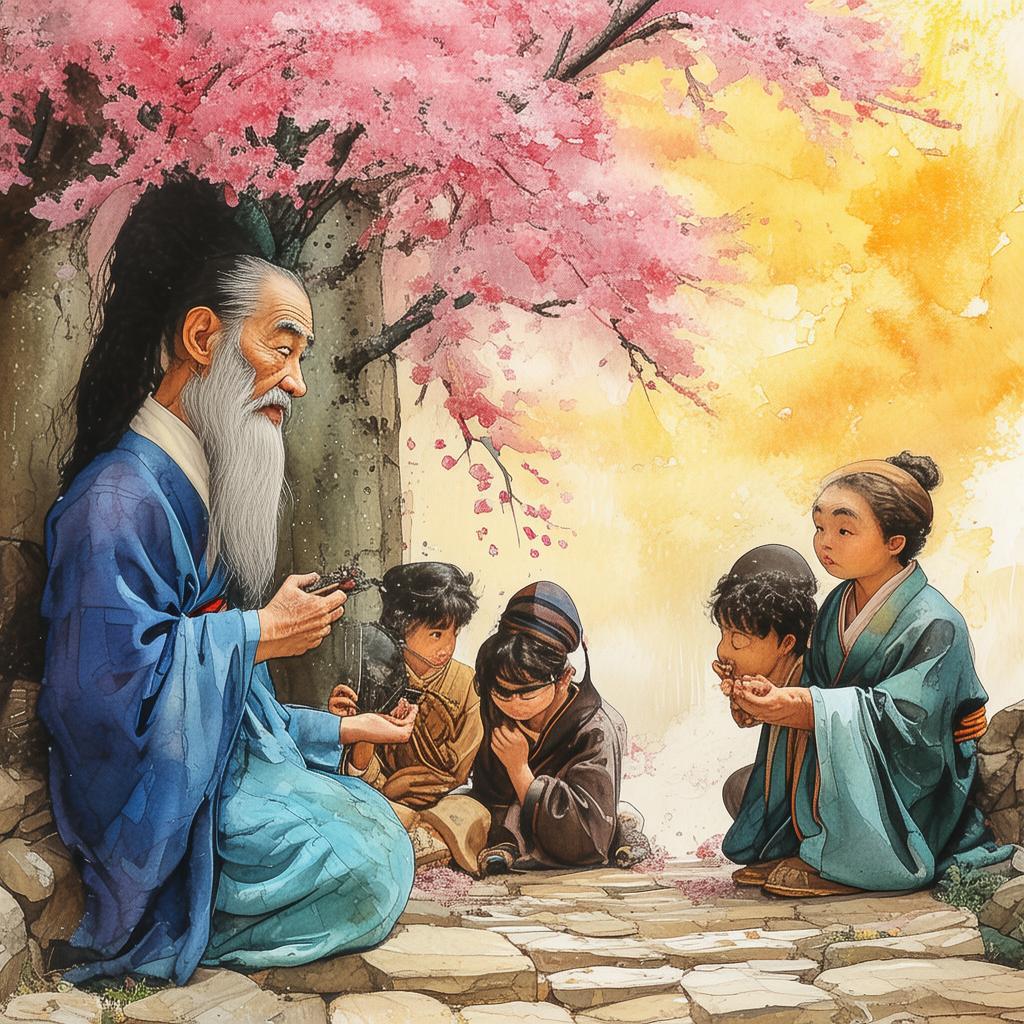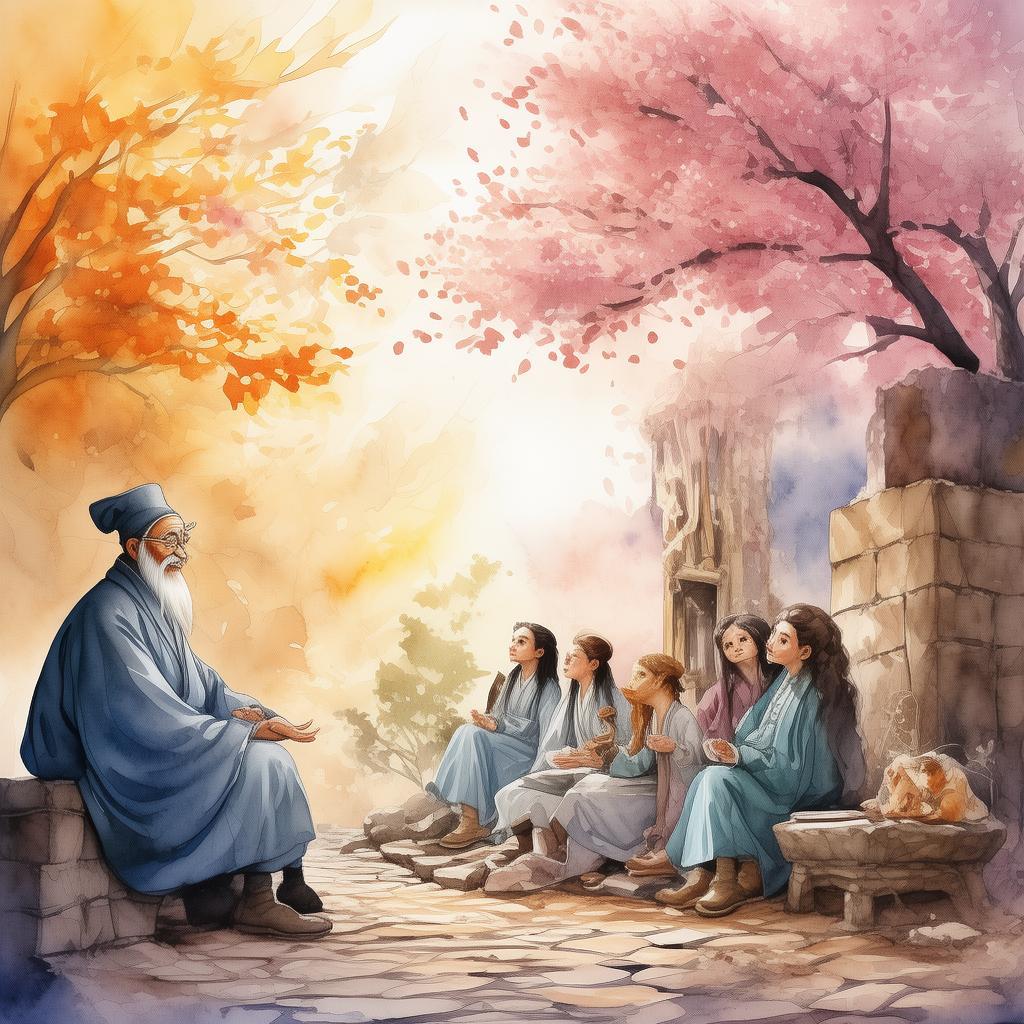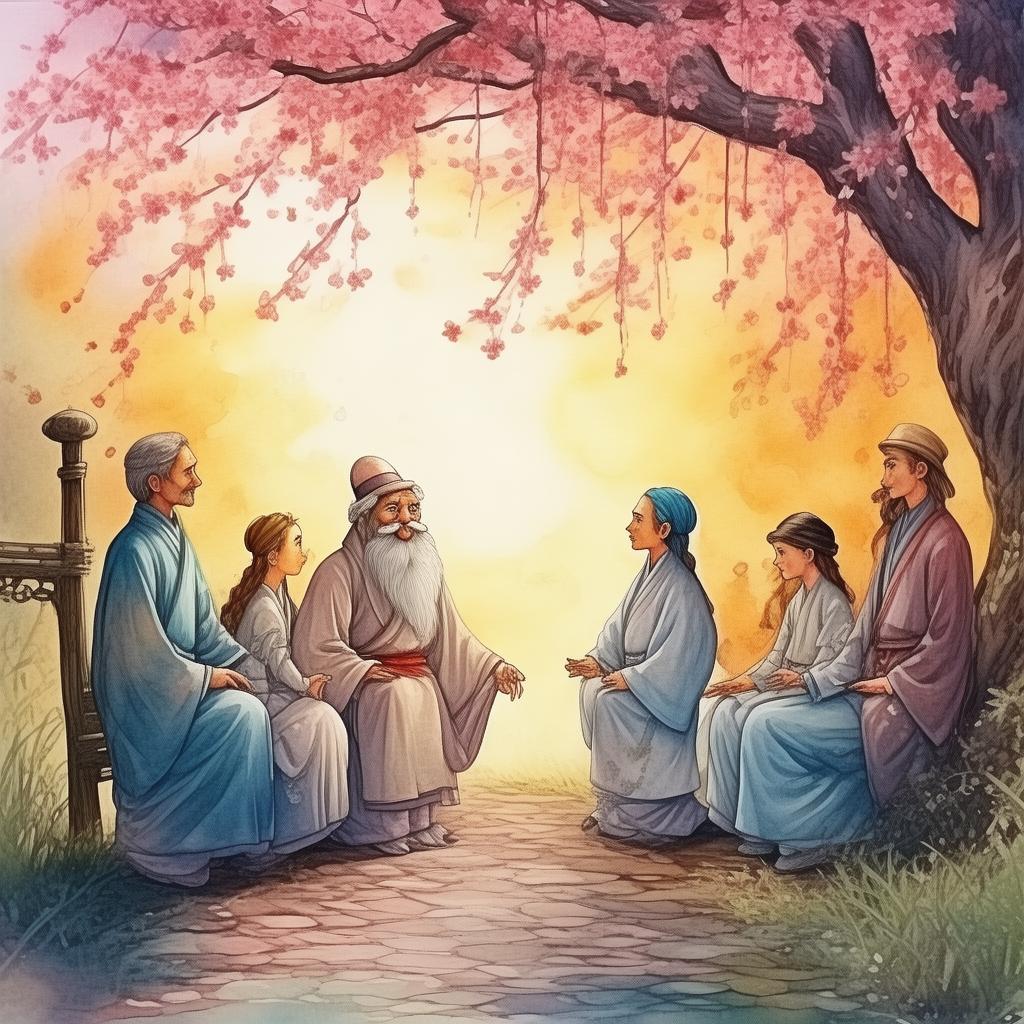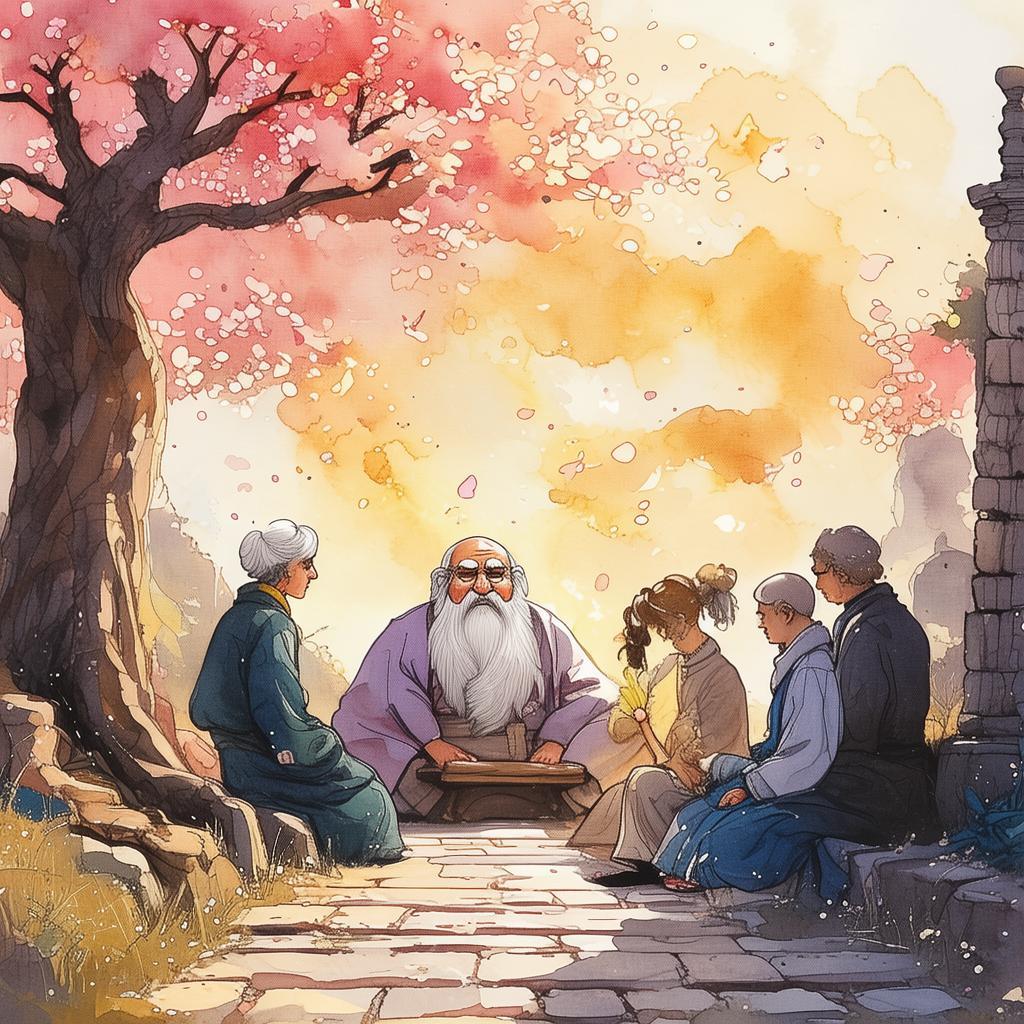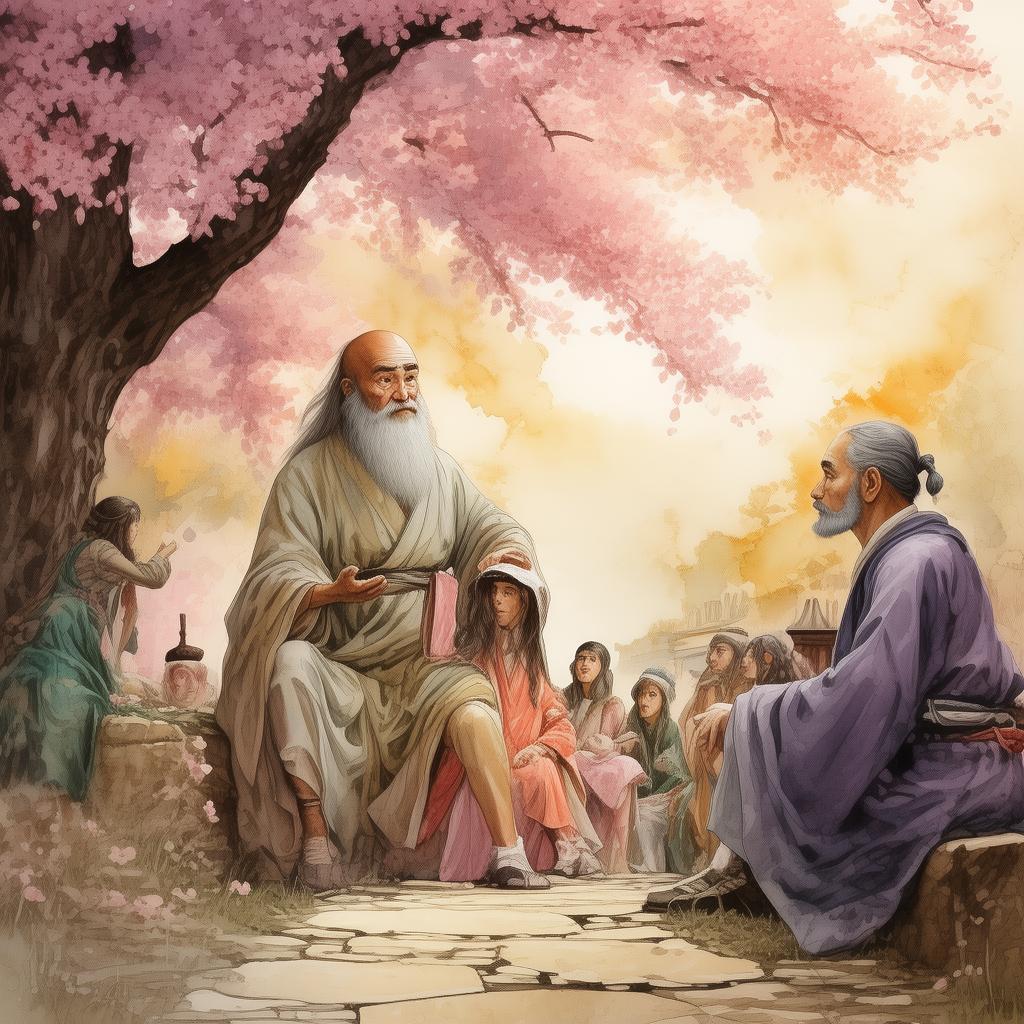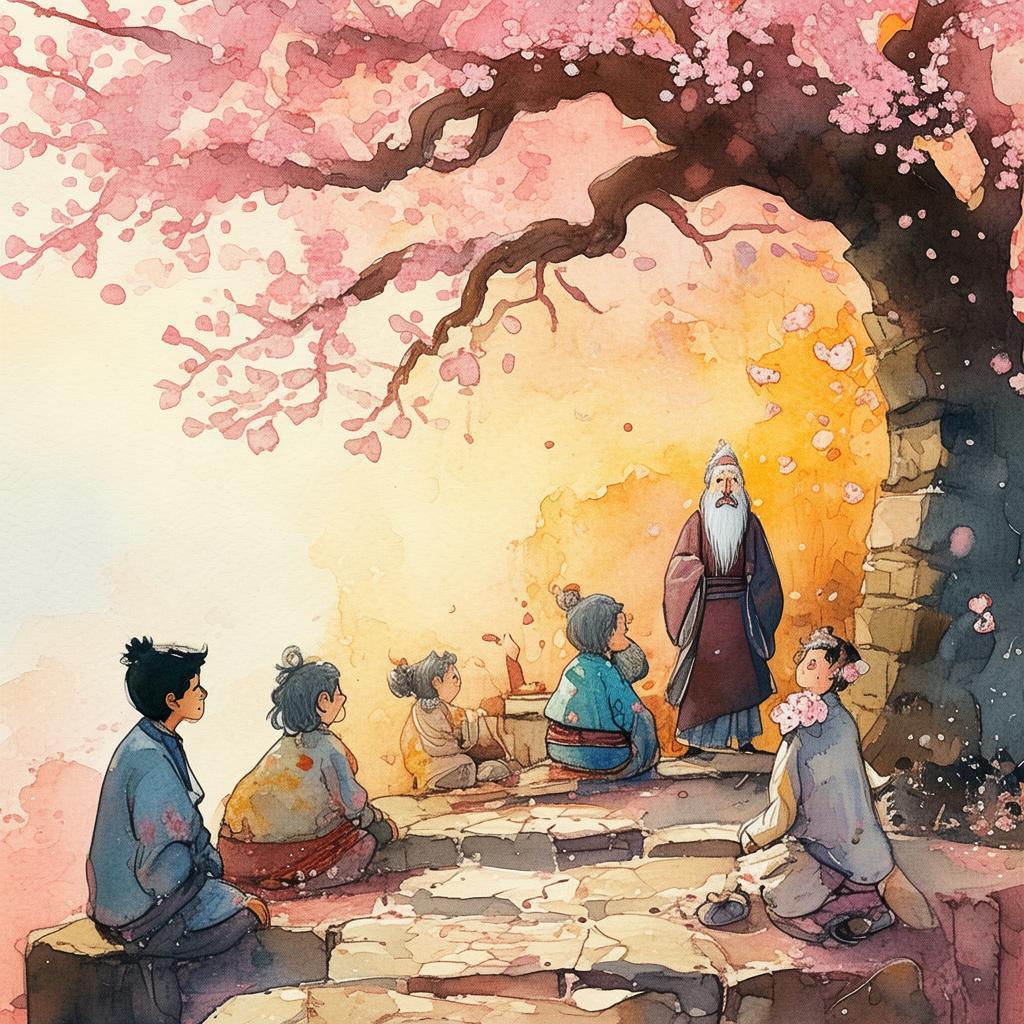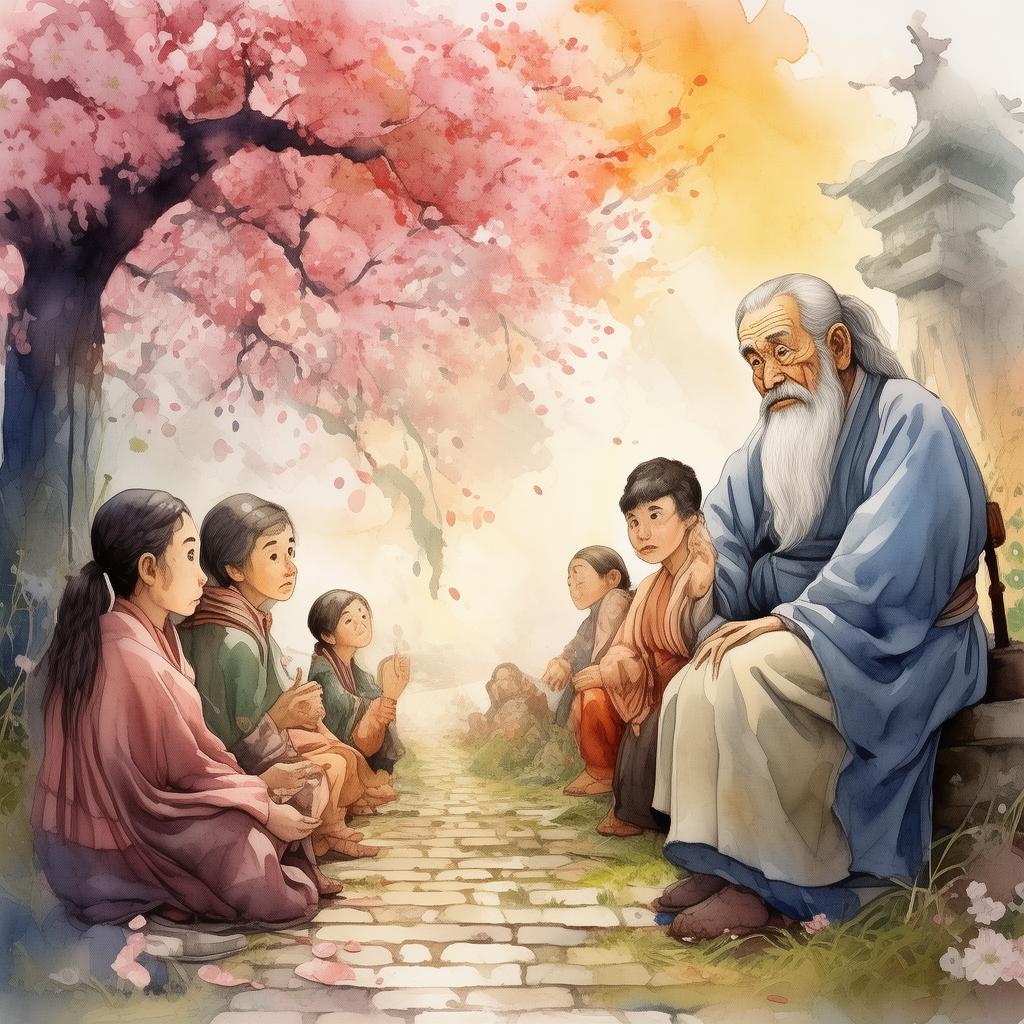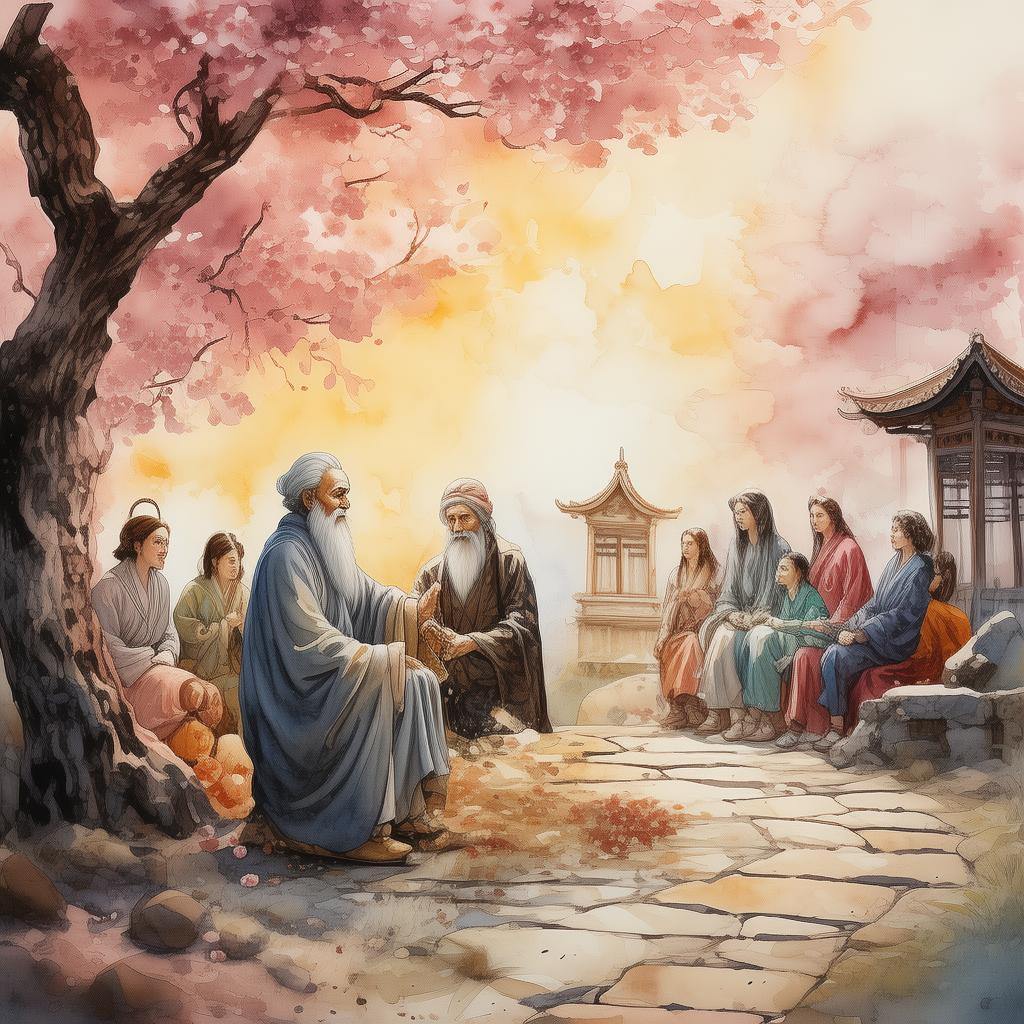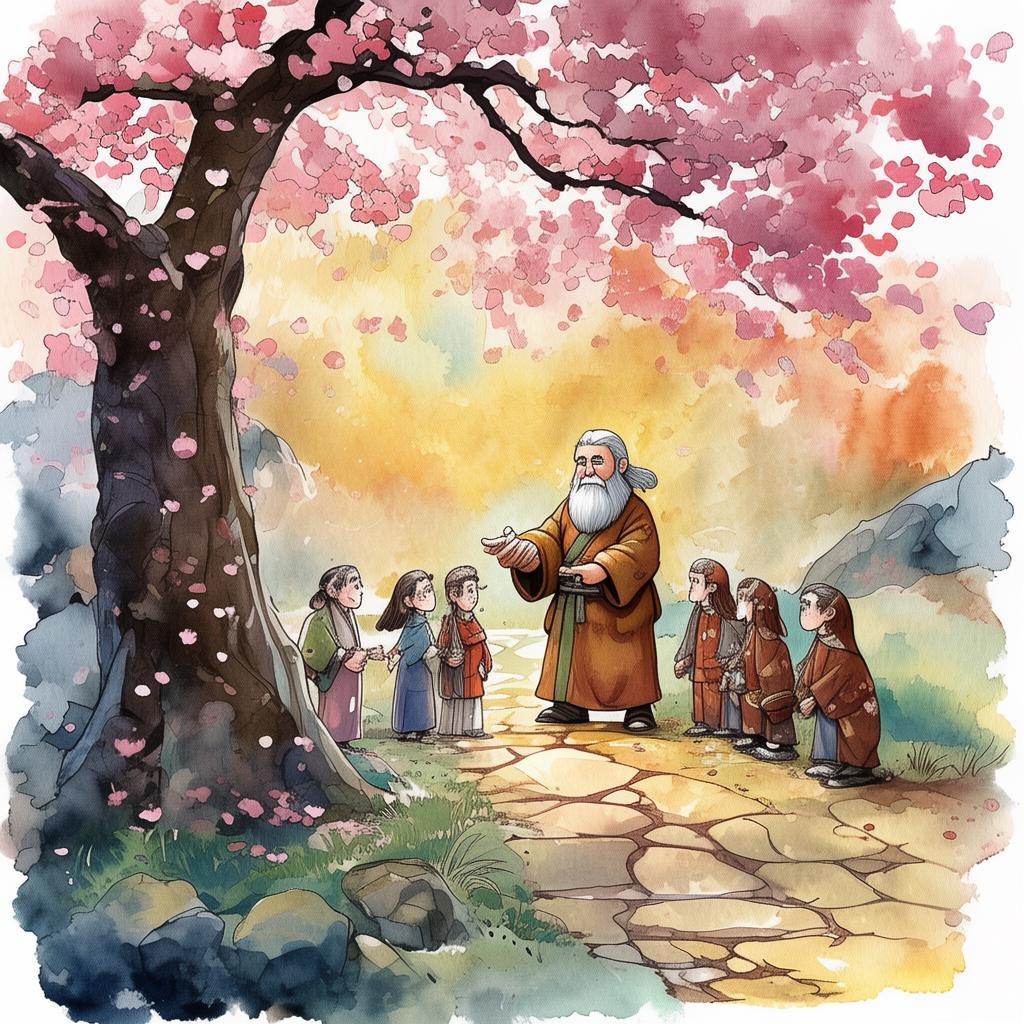Harmony's Requiem: The Symphony of Shadows and Light
In the heart of a bustling metropolis, where the skyline was a testament to human ambition and the relentless march of progress, there lived a musician named Aria. Her life was a symphony of her own, filled with the melodies of triumph and the echoes of sorrow. Aria had always believed that true harmony could be found in the balance between the light and the shadows, a concept that she sought to express through her music.
One evening, as the city lights flickered against the night sky, Aria found herself in her dimly lit studio, surrounded by sheets of paper and a grand piano. She had been working on a new piece, a symphony that would be unlike anything she had ever composed. It was to be called "Harmony's Requiem," a work that would encapsulate the essence of progress and the coexistence of light and darkness.
The symphony was to be a journey, beginning with the gentle, hopeful strains of light, representing the dawn of human civilization. It would then shift into a more complex, darker section, reflecting the struggles and conflicts that had marked the course of human history. Finally, it would conclude with a triumphant return to the light, symbolizing the ultimate victory of progress over adversity.
As Aria worked, she found herself drawn into the music, her fingers dancing over the keys with a life of their own. The symphony took on a life of its own, evolving with each note she played. It was as if the music was revealing something hidden, something that Aria had not yet fully understood.
One day, as she was lost in her composition, Aria's doorbell rang. She was surprised to find a young man standing on her doorstep, his eyes filled with a mixture of awe and urgency. He introduced himself as Leo, a historian who had heard about her work and believed that her symphony could be the key to unlocking a hidden truth about the city's past.
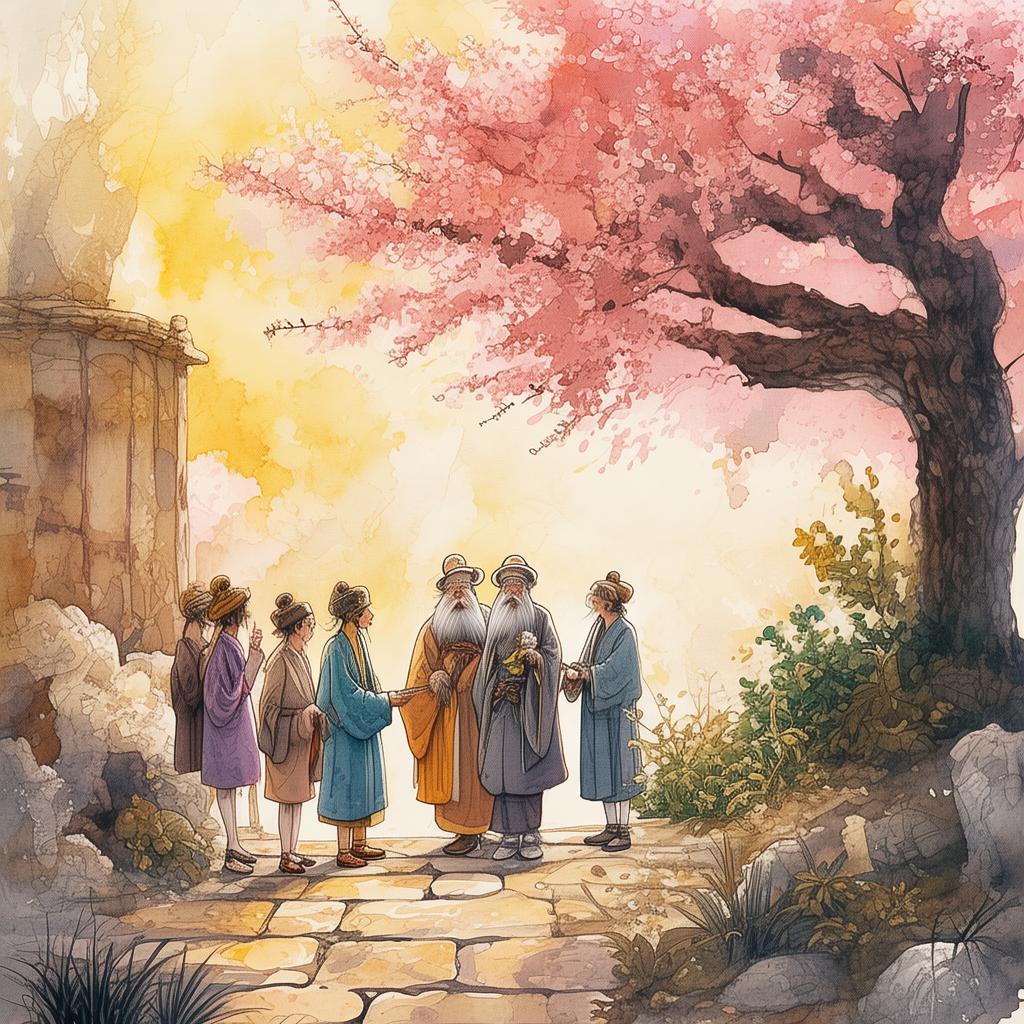
Leo explained that the city had been built on the site of an ancient, forgotten civilization. This civilization had thrived for centuries, but had mysteriously vanished without a trace. Leo believed that the symphony could reveal the secrets of this lost world, secrets that could help the city move forward.
Intrigued, Aria agreed to help Leo. She began to research the ancient civilization, poring over texts and artifacts that had been hidden away for centuries. As she delved deeper, she discovered that the civilization had been a utopia, a place where the light and the shadows had coexisted in perfect harmony.
However, this harmony had been shattered by a powerful ruler who sought to impose his vision of progress at any cost. The ruler had ordered the destruction of the ancient city, leaving only ruins and whispers of its former glory. Aria realized that the symphony was not just about the balance between light and darkness, but also about the consequences of progress when it is pursued without regard for the past.
As Aria and Leo worked together, the symphony began to take on a new dimension. The light sections grew brighter, more hopeful, while the darker sections became more complex, reflecting the internal conflicts that had driven the civilization to its downfall.
The day of the symphony's premiere arrived. The city was abuzz with anticipation, and the grand hall was filled with an expectant silence. Aria took the stage, her fingers poised over the keys. As the music began, the audience was transported into a world where light and darkness danced together in a delicate balance.
The symphony reached its climax, with the light sections growing ever brighter, and the darker sections deepening in complexity. Then, in a stunning twist, the music shifted once more, revealing a hidden melody that had been hidden within the composition all along. This melody was the key to understanding the ancient civilization's secret, a secret that could help the city move forward.
As the final note rang out, the audience erupted into applause. Aria had not only composed a symphony that captured the essence of progress and the balance between light and darkness, but she had also uncovered the truth about the ancient civilization that had once thrived on the site of the city.
In the days that followed, the city began to change. The ruins of the ancient civilization were preserved and celebrated, serving as a reminder of the importance of progress, but also of the need to respect the past. Aria's symphony had become more than just a piece of music; it had become a symbol of hope and a call to action.
Aria looked out at the city, her heart swelling with pride. She had not only composed a symphony, but she had also played a part in shaping the future of the city. And as the sun set over the skyline, casting a golden glow over the metropolis, Aria knew that her journey was far from over. The symphony had only just begun.
✨ Original Statement ✨
All articles published on this website (including but not limited to text, images, videos, and other content) are original or authorized for reposting and are protected by relevant laws. Without the explicit written permission of this website, no individual or organization may copy, modify, repost, or use the content for commercial purposes.
If you need to quote or cooperate, please contact this site for authorization. We reserve the right to pursue legal responsibility for any unauthorized use.
Hereby declared.
